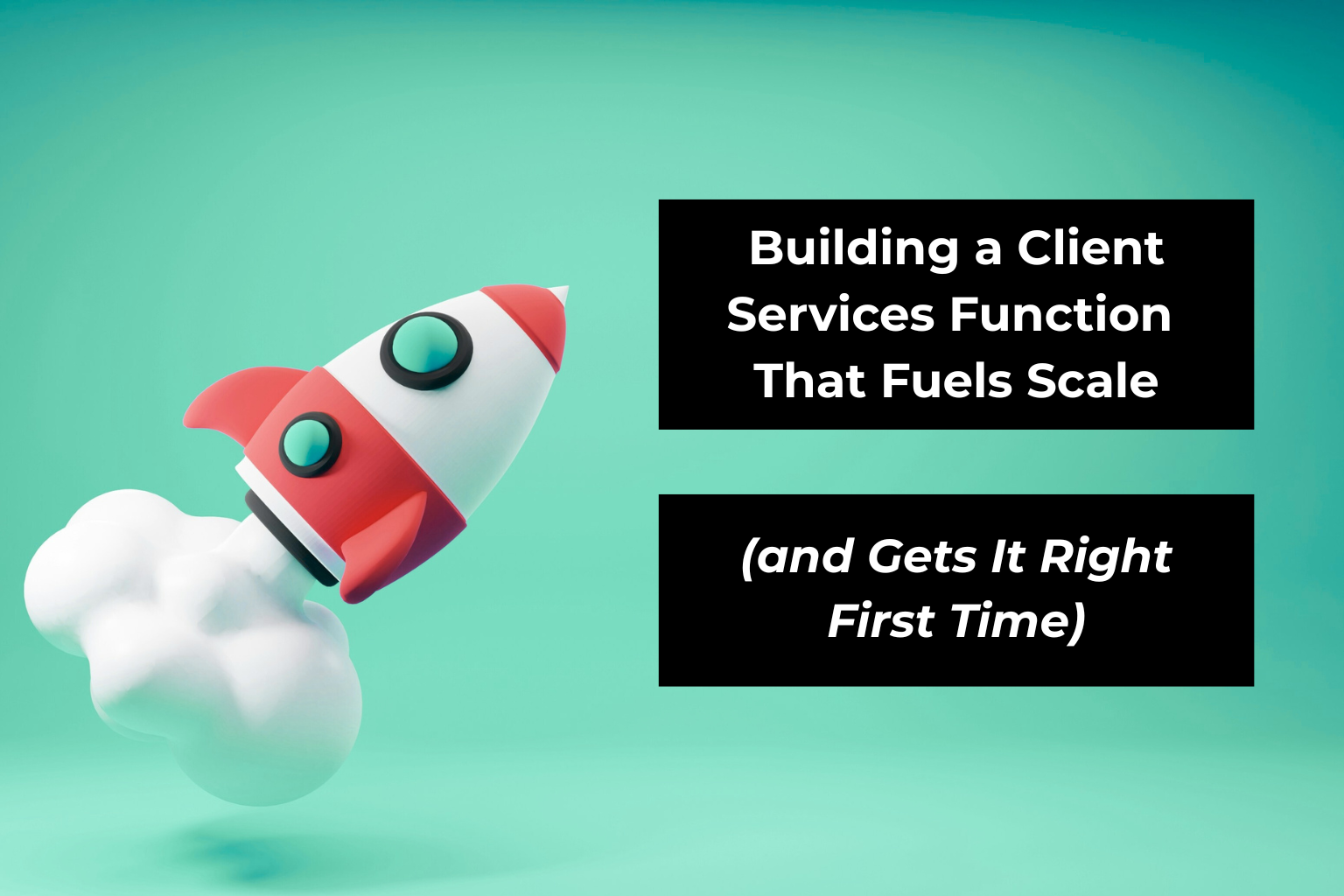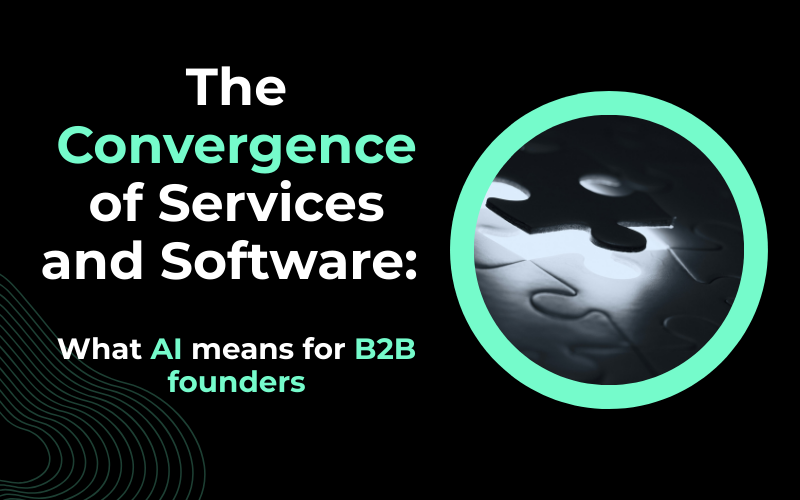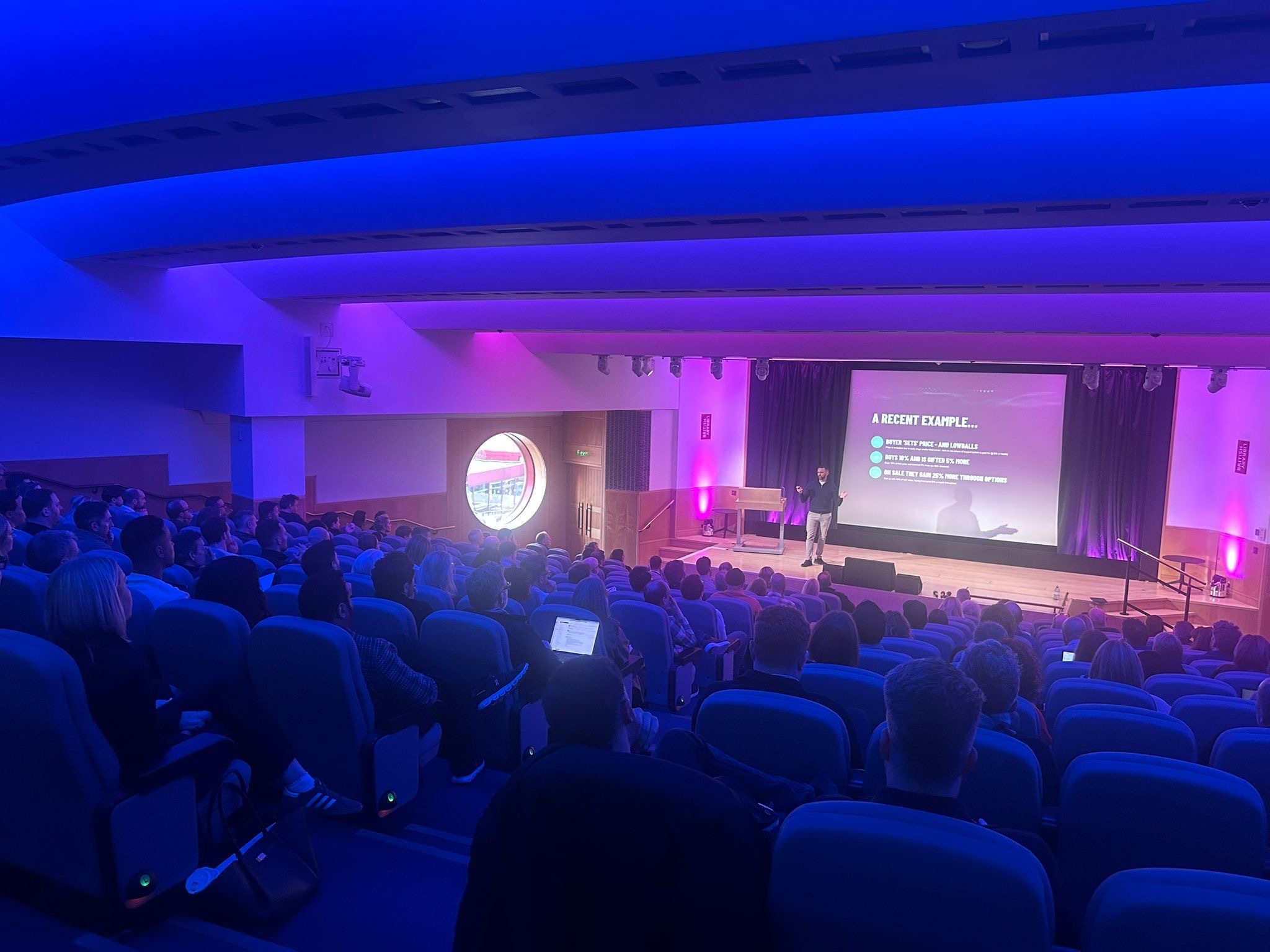There comes a certain point in time with every growing agency and B2B service provider where founders start to become a bottleneck.
At a certain point, you can’t be on every client call. Your hands can’t be on every deliverable. You can’t personally be on hand for every client concern or single-handedly manage every growth opportunity.
The realisation occurs that to scale sustainably, you need a dedicated client services (CS) function. A team devised, structured and designated to own and grow client relationships, maintain consistency, ensure retention and open up new opportunities – all without everything needing to flow through the founder.
But there needs to be clear definition behind the decision to build a CS function and purpose and crystal clear clarity on the role of CS and how it directly contributes to the growth and development of the business:
- In order to support further scaling, founders need to have strong retention to provide revenue consistency and predictability
- They need to be able to explore further opportunities inside the existing client base to upsell and cross-sell
- They need to realise LTV through long-term and high-value client relationships, they need to develop, maintain and progress senior stakeholder relationships to maximise the presence and effectiveness of their work with the clients
A CS function isn’t just about firefighting or “keeping clients happy.” If you’re going to invest in it and it is a strategic investment, often one of the most senior and expensive hires you’ll make at that stage – it has to be designed with purpose. Done right, it becomes a revenue engine – additive and accelerator to growth. Done poorly, it just adds overhead.
So what does “getting it right the first time” look like? In my experience, there are five critical considerations:
1. Experience
Don’t think of this as an “account manager plus.” You need someone who has been through the course before – someone who has managed complex client portfolios in B2B services, created, maintained and developed strong relationships with senior stakeholders, and navigated the ups and downs of long-term engagements. A demonstrable track record here is pivotal.
Strategic hires are long-term investments. Founders need to be self-aware of their own limitations and target a skills and experience set that is greater than their own to supplement the leadership team within the business.
2. Credibility at C-Suite Level
Your clients’ senior stakeholders – often at C-level – need and want someone who can speak their language. Someone fluent in business challenges, strategy and outcomes in a way that positions your agency as a true partner. In short: a peer, not a vendor.
An experienced CS professional can position your business as a strategic partner, not just a service provider. They can connect your solutions to clients’ problems, challenges and opportunities with continuous focus on outcomes and value creation.
The route to account development versus simply account management is dependent on this.
3. Development Over Management
Account management and account development are markedly different and require different mindsets, skills and experience to master.
A structured approach to Account Development is about uncovering needs, anticipating future challenges, and aligning your services to create value. A strong CS leader brings structure to this – mapping pains, goals, and opportunities, then leading internal teams to meet and exceed them and demonstrate value.
This is where client lifetime value (LTV) grows, not just through retention, but through thoughtful upsell, cross-sell, and deeper integration into your clients’ businesses and resulting value exchange between partners.
4. An Engagement Model That Fuels Growth
Too many agencies and service providers limit themselves to account management and delivering the current brief. As a result, they often leave opportunity unexplored and growth untapped.
The opportunity lies in structuring client engagement to explore “what’s next.”
This means setting up regular forums that continually engage the senior client stakeholders – QBRs, strategic reviews, innovation sessions – where you can both showcase results to reinforce your value and discuss future possibilities based on your depth of knowledge and expertise, the clients business, their market and the external factors that impact them.
This is where the founder(s) can be deployed strategically. An “executive sponsor” model where founders maintain peer-to-peer touchpoints with client executives strengthens relationships without pulling the founder back into the day-to-day weeds.
5. Consultation & Strategy Over Management & Delivery
Most early-phase businesses are built on subject matter expertise, delivery focus and executional excellence.
But as you scale, you need people who can think and act consultatively – planning strategically, positioning outcomes over outputs, and helping clients solve bigger problems.
That shift – from services to solutions, from deliverables to outcomes – is what elevates you from supplier to strategic partner. And it’s exactly the mindset your CS function should embody.
The Outcome
A successful CS function is built through augmenting that and professionalising and standardising a best practice that can scale as the business scales.
At the core is an understanding that solutions are more valuable than services, outcomes are more valuable than deliverables and critical, strategic thinking is more important and valuable than execution.
When you embed a CS function with the right leadership, mindset, and structure, you get more than just client “management.” You get:
- Retention that provides revenue consistency and predictability.
- Growth from within your existing base – upsells, cross-sells, deeper engagements.
- Senior relationships that keep you close to client strategy and future needs.
- More scope for the founder to focus on scaling, not absorption in the day to day
In short, you turn client services into a retention and growth engine.
Founders shouldn’t treat this as just another incremental hire.
Treat it as a strategic imperative and initiative. Be clear about what you need, invest at the right level, and ensure your CS function reflects the vision and values of the business. Do that, and you won’t just “free up the founder.” You’ll embed a business function that can unlock a whole new phase of scale.



